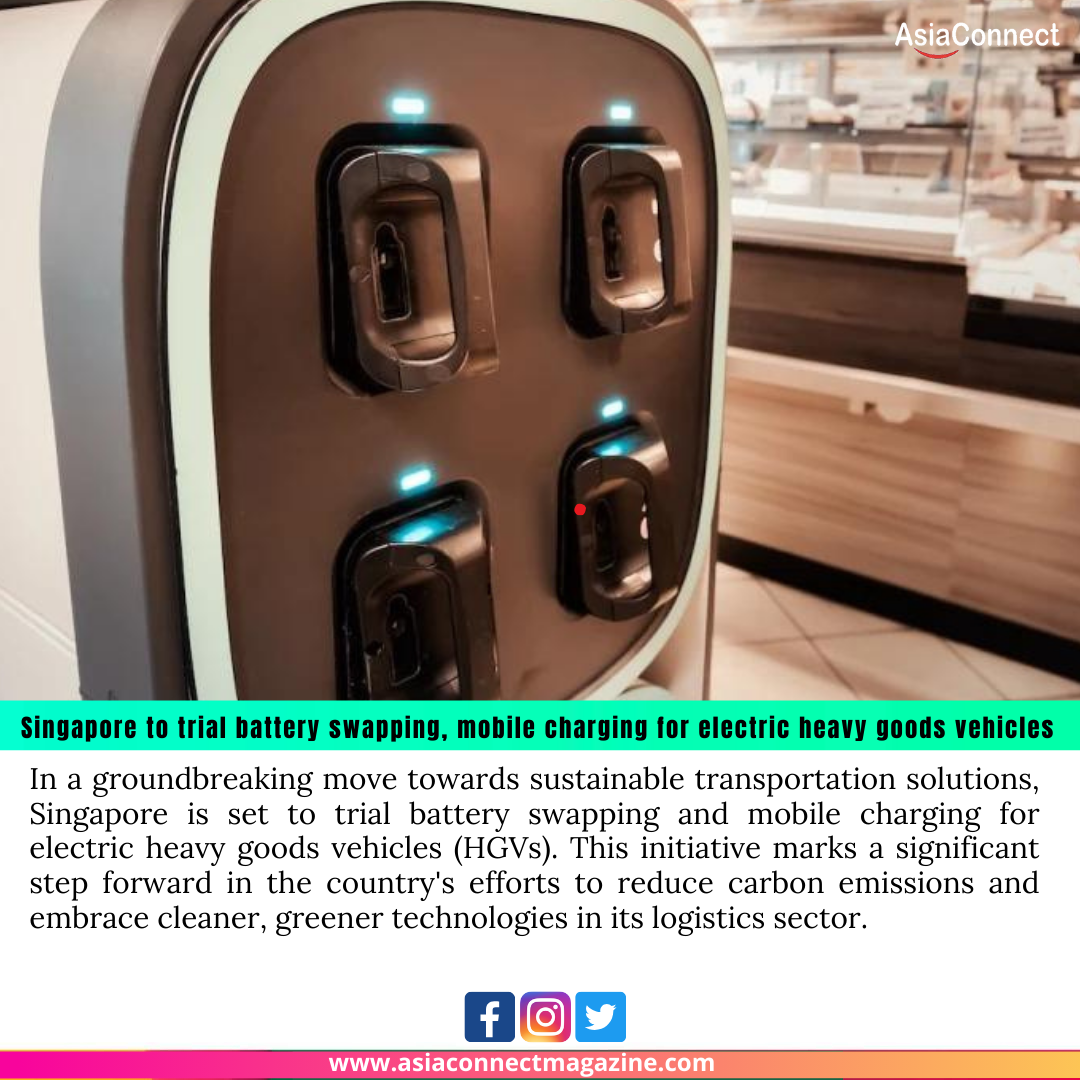In a groundbreaking move towards sustainable transportation solutions, Singapore is set to trial battery swapping and mobile charging for electric heavy goods vehicles (HGVs). This initiative marks a significant step forward in the country’s efforts to reduce carbon emissions and embrace cleaner, greener technologies in its logistics sector.
The trial, spearheaded by Singapore’s government agencies and industry partners, aims to evaluate the feasibility and effectiveness of alternative charging methods for electric HGVs. Two entities already providing mobile electric vehicle (EV) charging services will participate, bringing their expertise to the forefront of this innovative endeavor.
The decision to explore battery swapping and mobile charging for electric HGVs comes in response to the growing demand for eco-friendly transportation solutions in Singapore. With increasing concerns about air pollution and climate change, there is a pressing need to transition towards cleaner energy sources and reduce reliance on fossil fuels.
Battery swapping presents a promising solution to the challenges of charging electric HGVs efficiently. Instead of waiting for extended periods for traditional charging, vehicles can quickly swap out depleted batteries for fully charged ones, minimizing downtime and maximizing operational efficiency. This rapid exchange system is especially beneficial for logistics companies with tight schedules and demanding delivery timelines.
Mobile charging further enhances the flexibility and accessibility of charging infrastructure for electric HGVs. By deploying charging stations to strategic locations or directly to vehicles in need, operators can ensure continuous operation without the constraints of fixed charging stations. This on-the-go charging capability empowers drivers to maintain productivity while minimizing disruptions to their routes.
Singapore’s trial of battery swapping and mobile charging for electric HGVs is expected to yield valuable insights into their practicality and scalability in real-world scenarios. By evaluating factors such as charging speed, reliability, and cost-effectiveness, stakeholders can make informed decisions about integrating these technologies into the country’s logistics ecosystem.
Moreover, the trial underscores Singapore’s commitment to fostering innovation and sustainability in its transportation sector. By embracing emerging technologies and exploring alternative energy solutions, the country aims to position itself as a leader in the global transition towards clean, efficient transportation systems.
Beyond the environmental benefits, the adoption of battery swapping and mobile charging for electric HGVs can also lead to economic advantages. Reduced dependence on fossil fuels can lower operational costs for logistics companies, while increased efficiency and reliability enhance overall productivity. Furthermore, by supporting the growth of EV infrastructure and services, Singapore can stimulate job creation and promote technological innovation in the green economy.
Looking ahead, the success of Singapore’s trial could have far-reaching implications for the future of electric HGVs and sustainable transportation worldwide. As other countries grapple with similar challenges related to emissions reduction and energy transition, the lessons learned from this initiative could serve as a blueprint for implementing innovative solutions on a global scale.
In conclusion, Singapore’s trial of battery swapping and mobile charging for electric heavy goods vehicles represents a bold step towards a cleaner, more sustainable future. By harnessing the power of technology and collaboration, the country is driving positive change in its logistics industry and setting an example for others to follow. As the world continues to prioritize environmental stewardship and innovation, initiatives like this will play a crucial role in shaping the future of transportation and combating climate change.





